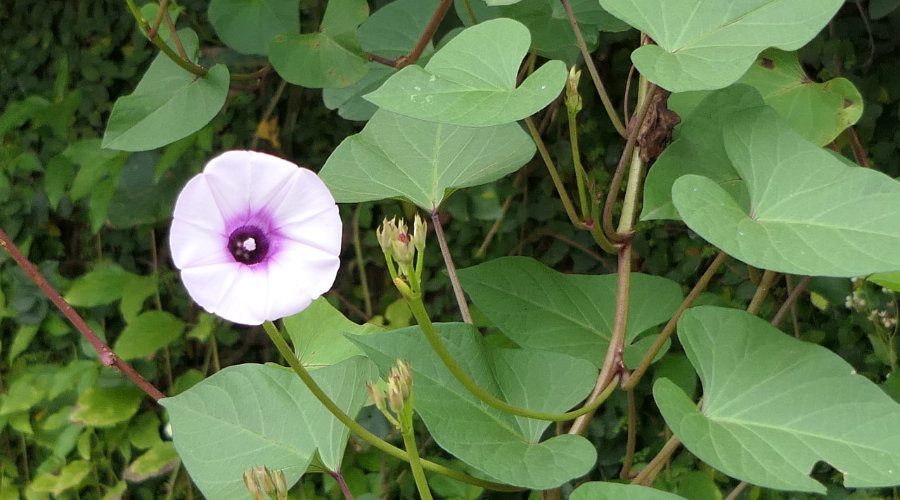Sweet Potato/ Kumera
Plant text by Naomi Lacey, feature photo Wikipedia
Common name: Sweet Potato, Kumera
Scientific name: Ipomoea batatas
Family, and related species: Convolvulaceae
Description including form (tree, climber, etc), other similar species
Sweet potato is a root vegetable with a lush, creeping vine. The vine has dark green, heart-shaped leaves and grows vigorously. The tubers are long and tapered with smooth skin with skin colour ranging from yellow through to purple and flesh colour ranging from white through to orange and purple depending on the variety.
Role/ characteristics/ use in permaculture
The tuber and leaves are edible and also make great animal fodder.
The vine is a beautiful ornamental plant that grows well in pots.
It is an excellent pond or aquarium plant that filters the water and also provides food for aquatic animals.
Ecology and habitat requirements
Sweet potato prefers a warm, temperate climate with lots of sun and warm nights. It will not tolerate frost and is sensitive to drought and cold. It also does not like waterlogging so does best in well drained, medium textured soils. It grows well in poor soils but does best with the addition of some organic fertilisers. If planting in heavy, clay soils, use raised beds of a good organic soil and mulch.
Access to plants
Grows very easily from vine cuttings or slips which can be planted directly into the ground. Slips can be cultivated from tubers purchased at supermarkets or local markets.
Also available from most nurseries.
Other
Sweet potatoes do not store well and are best left in the ground and harvested as required.
References
Norrington, Leonie, 2001, Tropical Food Gardens: A guide to growing fruit, herbs and vegetables, Bloomings Books, Melbourne, Australia
Wikipedia, 2014, Sweet potato.
Bonnie Plants, 2014, Growing Sweet Potatoes.
Tropical Permaculture, 2014, Growing Sweet Potatoes.

